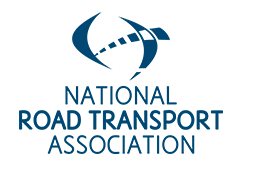Enforcement Practices across Borders in the Firing Line

NatRoad has blamed a parochial attitude for the inconsistent enforcement practices happening across borders, an attitude that has become extremely problematic to members of the trucking industry, which is why it has recommended a high level committee be established to resolve these issues.
Some of the problematic issues resulted from this narrow-minded approach is cross-border compliance issues and enforcement issues.
In an article on Fullyloaded.com.au NatRoad CEO, Chris Melham spoke about the concerns over “inconsistent” practices and “over-zealous” authorities. Mr Melham said his organisation was inundated with phone calls from trucking operators who were battling with these issues, despite the implementation of the Heavy Vehicle National Law (HVNL).
The problems seem to be around the fact that although the HVNL has been introduced, they are being interpreted differently across the borders. The states that have implemented the laws so far are New South Wales, Queensland, Victoria, South Australia, Tasmania and the Australian Capital Territory.
Mr Melham stated:
“It really is 99 per cent of our calls are grievances with road agencies,” he says.
“I think we’ve still got a high level of parochialism and self-interest in relation to road agencies wanting to retain their power over road law. They are reluctant to relinquish that power to the NHVR [National Heavy Vehicle Regulator].”
Source: http://www.fullyloaded.com.au
Mr Melham and NatRoad have been pushing for the creation of a committee of both industry and government representatives, an approach he believes will help address some of the concerns from the industry.
NatRoads proposal which they have been advocating for the past 2 years would involve a committee of federal, state and territory transport department officials, the NHVR, The National Transport Commission (NTC) and representatives from the trucking industry.
Mr Melham went on to explain:
“Because at the moment industry is not allowed in the room with the jurisdictions so we have no absolutely no idea what jurisdictions’ positions and their culture is on certain reform issues under Heavy Vehicle National Law,” Melham says.
“So we’re forever playing catch-up and second-guessing what the next move of the states are. We want to actually help the states. We want to understand what is your issue taking direction form the NHVR on certain aspects of the law? What’s your problem there?”
Source: http://www.fullyloaded.com.au
Mr Melham wants Warren Truss, federal infrastructure minister to take the proposal to the next meeting of the country’s transport ministers to get their go-ahead for the committee. Melham also went on to stress the urgency for such a committee to be established because as he explained, the industry is becoming increasingly frustrated. He explained:
“If we are to progress Heavy Vehicle National Law (HVNL), we need to do it sooner rather than later. The industry is losing patience,” he says.
Source: http://www.fullyloaded.com.au
Melham says his organisation is getting notices weekly from the NHVR about decisions it has overturned from authorities because they were not correctly interpreted according to the HVNL, all this could be eliminated if the NHVR created the industry/government committee to deliberate on such issues. Melham hopes the NHVR will play a bigger part in solving compliance and enforcement issues once heavy vehicle permits have been sorted out. The post went on to explain:
“The quicker we can get the NHVR into that space, into the compliance and enforcement space, I think the industry is going to see its true worth,” he says.
Source: http://www.fullyloaded.com.au
Mr Melham also said that although the agency will face some challenges in changing the culture of state and territory transport departments, it is a much needed change. Mr Melham concluded by explaining,
“It’s going to be very difficult. It’s going to be the NHVR and the states. That is going to be the biggest challenge,” he says.
Source: http://www.fullyloaded.com.au


